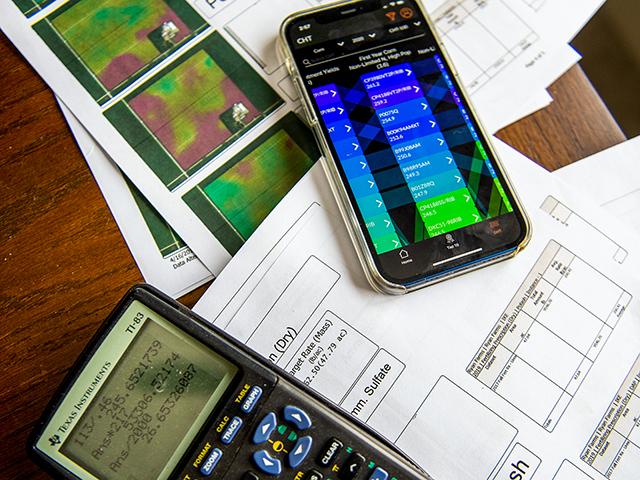We'd Like To Mention
Shades of Green
When John Deere fashioned the first commercially successful, self-scouring steel plow in 1837, his work was an example of technological improvement. The highly polished steel plow was a vast improvement on cast-iron plows that worked well in New England but not in the prairie soils of Illinois.
I remember visiting an Iowa farm in the 1980s where an early tech adopter was mapping his fields for soil type, insects and weeds. I don't remember exactly the gear on the boom. But, I do remember bundles of wire he strung across it. Data collected was loaded into a line of computers holding his entire bank of processing power.
That was technology, too. But, it was also technology unfulfilled.
The Iowa farmer told me later that he was able to produce layers of data but no real conclusions. "What I've learned," he said, "is there are things I just can't control."
Since then, GPS guidance, autosteer, field mapping and digital scouting, yield monitors, precision planting and product applications have provided greater control of the production day. But, it is insight unfulfilled.
INFORMATION POOR
"We're so data-rich," says Matt Danner, western Iowa, "and yet, we're so information poor. We plant the same hybrid across several farms in dozens of different moisture levels, different heat units, planting dates, elevations, and then we collect the various yields and test weights," he says. "Tell me five things about that hybrid in those varied conditions that I can use next year."
P[L1] D[0x0] M[300x250] OOP[F] ADUNIT[] T[]
Danner neatly lays out the problem. Instead of bigger and more powerful, it is clear agriculture will benefit more from smaller and more focused. How about a view into the seed trench during planting making management fixes on the go? Sprayer technology with cameras that target individual weeds? Cool. But, what other data can those cameras vacuum up as they pass over the crop?
Colorado farmer Brett Arnusch's job on his family's operation is data comprehension. "It is prescriptive analytics," says his father, Marc. "Data that will tell you, 'Hey, we're probably going to be getting some stripe rust here pretty soon; you might want to think about spraying.'"
Technology is evolving from things big to shades of things minute. Computers still crunch data. But, sensors and apps will (already do) find answers in real time.
In this February 2022 issue of Progressive Farmer, we're giving you a close-up look at a sample of the next game changers in agriculture -- the next self-scouring plow. You'll see how farmers are using various technologies and other tools to analyze tiers of field data to gain greater productive insight.
Imagine that? 1980s Iowa guy longing for control, meet your 2022 grandson who is finding it.
FINDING THE RIGHT ANSWERS
There are stories about autonomous tractors, including a new entry from Big Green. What do you think John Deere might think standing next to Deere's autonomous 8R with its half-dozen stereo cameras?
Joel Reichenberger writes a story about a farmer in Washington state who is building his own apps and solutions. "[Andrew Nelson is] not the kind of farmer to settle for well enough or to wish away his time considering flaws in products. He's the kind to step back and build an app that does exactly what he wants, how he wants," Joel writes.
We think our technology package lays out a clear challenge to our industry: Data itself won't fulfill the promise technology offers until it brings site-specific solutions to production challenges.
**
-- Follow Dan on Twitter @DMillerPF
[PF_0222]
(c) Copyright 2022 DTN, LLC. All rights reserved.




